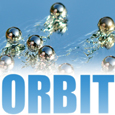Resources: Teacher education
- [[Topics/Progression|Progression]]
- [[Topics/Curriculum development|Curriculum development]]
- [[Topics/Literacy|Literacy]]
- [[Topics/Curriculum development|Curriculum development]]
- [[Topics/Learning objectives|Learning objectives]]
- [[Topics/Differentiation|Differentiation]]
- [[Topics/Curriculum planning|Curriculum planning]]
- [[Topics/Progression|Progression]]
- [[Topics/Questioning|Questioning]]
- [[Topics/Using ICT in Science Teaching|Using ICT in Science Teaching]]
Relevant resources
| Differentiation | Differentiation | |

|
Developing effective techniques for differentiation by task and outcome The small group work(ta) nature of this task allows teachers to share ideas, and attempt to conceptualise two different types of differentiation(ta), together. It also encourages teachers to share practice(i)s in differentiation. Teachers are first asked to consider differentiation ‘by task’ by thinking about self-sustaining activities which pupils could manage with little support. They are also asked to consider differentiation by outcome, and ‘hierarchies of achievement’ for particular topics. The practical nature of the task offers a concrete outcome for teachers to take away and use in their practice both day to day, and in curriculum planning(topic). The resource could be used as a prompt to start teachers off, a comparator for teachers working on similar topics, or just as an additional set of possibilities.
| |
| Learning objectives | Writing Learning Objectives in Primary Science | |

|
How are learning objectives supposed to work? How can one achieve mastery in writing learning objectives? This resource encourages teachers to think about ways to link learning objectives(ta) to the curriculum which also helps to conceptualise their teaching schemes. It also helps children to understand what they are learning and what they are aiming for. The resource brings together key ideas, looking at specific outcomes from activities, vocabulary(ta), differentiation(ta), resources and curriculum development(topic) and short term planning(ta). It could be used as a 'refresher' on ideas when planning lessons.
| |
| Literacy | Developing Language in Primary Science | |

|
Language development and the use of appropriate vocabulary(ta) is highlighted as important across the curriculum. Incorporating this consideration into science planning(ta) is important for meeting the target of developing language. The importance of language and talk in science – including through group work(ta), and Whole class(ta) dialogue – is highlighted elsewhere (and in the resource) but includes the ability to explain concepts, understand synthesising ideas (including those from other people and texts), and the need to read and write for different purposes, (including conceptual understanding, data presentation, etc). These are key ideas in communicating the scientific method(ta) | |
| Progression | Developing Progression in Primary Science | |

|
Progression and the wonders of 'one-ness' and 'two-ness' A first part on ‘developing progression in science investigations’ could be used to prompt discussion on how far we expect pupils to develop, and the sorts of inquiry(ta) which encourage this.
The second part, 'indicators of Level 1 and 2ness', provides a useful set of criteria for assessing national curriculum levels. These criteria prompt thinking about assessment(ta) levels in curriculum development(topic). A concrete outcome of the activity may be to keep such criteria in a mark book for day-to-day use. | |
| Progression | Progression and questioning techniques in primary science projects | |

|
Measuring force and measuring progress. This resource provides an overview of the Year 6 scheme of work - 6E Forces in action and includes some experiment examples. The experiments could be run in class, with increasingly advanced objectives(i) including students' use of language(ta), the factors they discuss, the way they use equipment, assessment(i), etc. This resource can work as standalone lesson ideas / science projects /inquiry(i), or to illustrate progression of concepts through a scheme of work or curriculum planning(i) document.
| |
| Questioning | Questioning Techniques in Primary Science | |

|
Asking questions about what students saw, measured, understood. About what could happen, happened, should have happened... and more. This resource offers the opportunity to think about the appropriate questions to ask at various stages of investigation and how to ensure high quality questioning(ta) at these points. This is obviously an important classroom skill, one which has a strong impact on children's progression, yet which can often be lacking in classrooms which tend to focus on fact-based recall questions. This resource offers an opportunity to think about such an activity and some prompts for applying questioning techniques. Although they are written for science, these suggestions could be used as prompts for application in other subjects.
| |
| Using ICT in Science Teaching | Effective Use of ICT | |

|
A resource for lecturers to introduce their PGCE students to effective use of ICT A presentation introduces student teachers briefly to the history of school ICT(i) provision and engages them in more detail with ways ICT has been used effectively in supporting science teaching and learning as they engage in small group work(ta) to evaluate material.
| |

